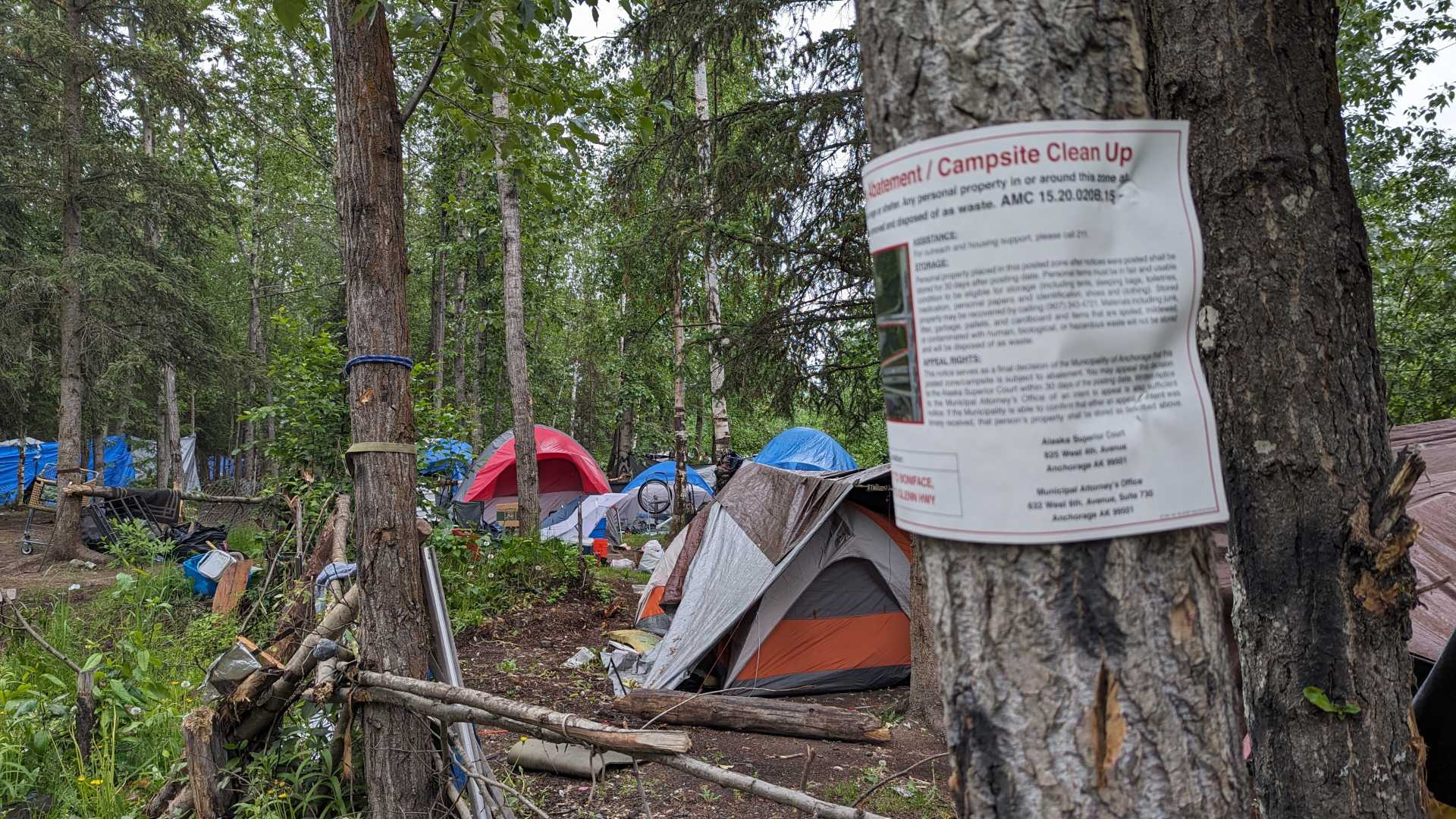News
Anchorage Assembly Approves Criminal Penalties for Public Camping

ANCHORAGE, Alaska — The Anchorage Assembly narrowly approved a new ordinance on Tuesday, voting 7-5 to impose criminal penalties for camping on certain public lands. The decision aims to address homelessness in the city while targeting large encampments near sensitive areas, such as schools and parks.
Supporters of the measure believe it provides a necessary approach to managing the issue. Mayor Suzanne LaFrance, who proposed the ordinance, emphasized the need for a balanced strategy. “Letting people permanently camp in public places is not safe. It’s not healthy. It’s not a solution,” she stated before the vote.
The approved ordinance defines “protected premises,” which includes schools, playgrounds, and recreational trails. Camping within several hundred feet of these areas is prohibited, and violators may face misdemeanors carrying fines up to $500 or possible jail time.
For those involved in constructing shelters, the measure also criminalizes building hard-walled structures on public land. Proponents argue that these laws are intended to prevent sprawling encampments, which have proliferated along Anchorage’s greenbelt.
Assembly member Daniel Volland supported the ordinance, stating, “There is an element of illegal camping in our community that has gotten a little bit out of control.” He added that public lands should not be occupied indefinitely.
Opponents of the measure, including progressive Assembly members, argue that it criminalizes homelessness without providing adequate alternatives or resources. Erin Baldwin Day, who voted against the ordinance, pointed out that while it outlines where camping is prohibited, it fails to indicate places where homeless individuals can safely go.
“On the very best of days, we do not have the resources,” Baldwin Day said, highlighting the lack of shelter availability.
The assembly also grappled with criticism regarding the treatment of those who refuse indoor options. Some members expressed concern over leaving vulnerable individuals without safe places to sleep. “Leaving people to die in the woods is not compassion. It is managed neglect,” said Jared Goecker, who represents the Eagle River district.
The new rules come as part of a broader effort by the city to tackle homelessness, which includes increased funding for shelters and behavioral health programs. The ordinance will take effect in one week.












